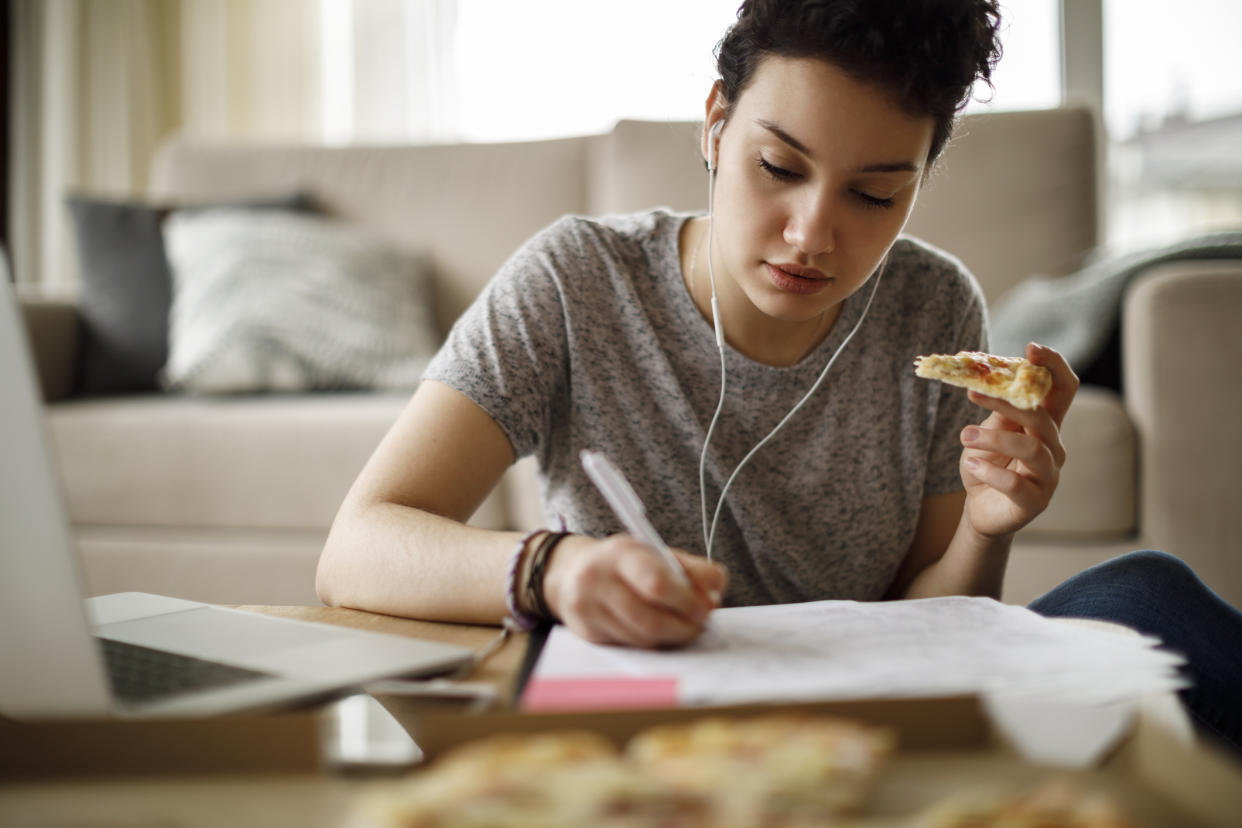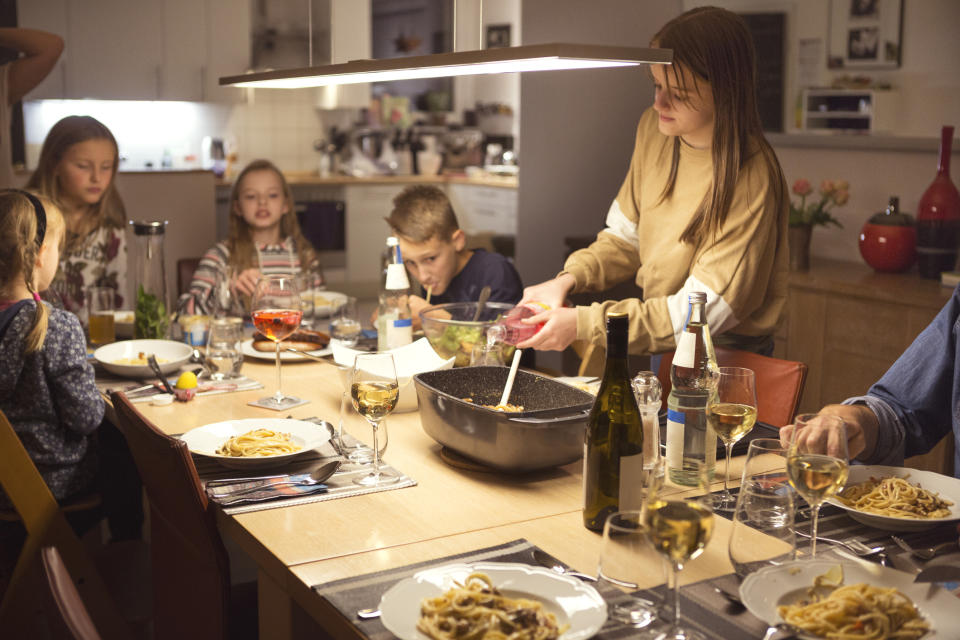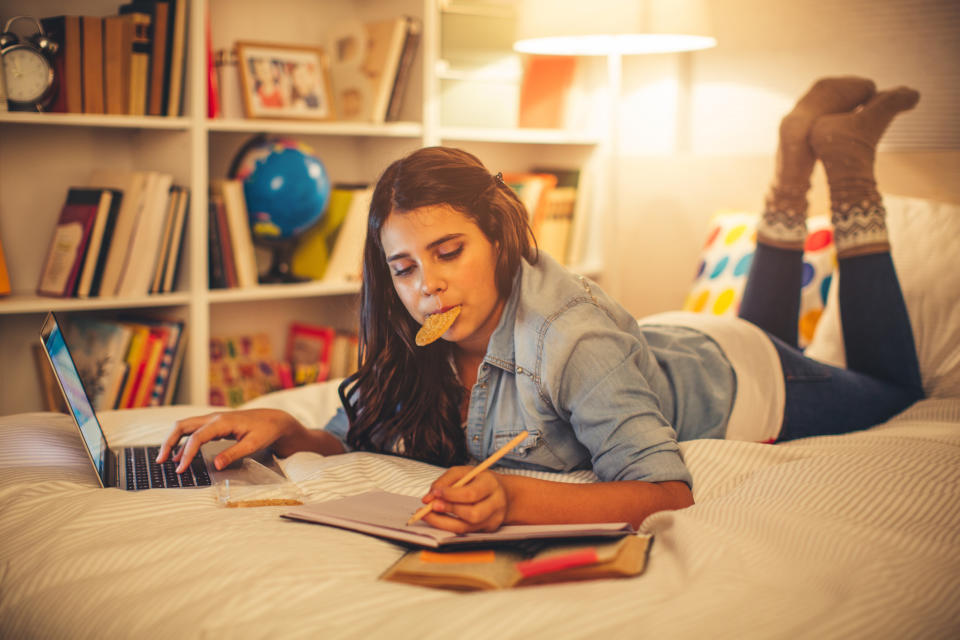More snacking and eating together: the impact of lockdown on teenagers' eating habits

Coronavirus lockdown has impacted our lives in many ways, not least in how much and what we’re eating (show us the snacks!).
But new research shows there have been both positive and negative changes in the eating habits of the nation’s teenagers.
Guy’s and St Thomas’s Charity and the Bite Back 2030 healthy eating charity found that while youngsters had found new enjoyment in having meals as a family, they also reported an increase in snacking.
Overall the report highlights significant changes in young people’s eating habits and attitudes to food since the start of lockdown, and reveals starkly different experiences based on socioeconomic background.
Read more: How coronavirus measures may be affecting children's mental health
Results, from over 1,000 14- to 19-year-olds, revealed 60% of young people thought more shared family meal times were positive for health and wellbeing, with a third of teens saying they had cooked more.
However, those from less affluent socioeconomic backgrounds were found to be stepping up to take responsibility for preparing meals for key worker single parents rather than cooking for enjoyment.

Also on the positive side, over 50% of young people said they had drunk more water during lockdown.
More worryingly, 40% of teens said they had snacked more in lockdown, with the report revealing that rather than sticking with three clear meals a day, children are either turning to less healthy options on a regular basis – with crisps and chocolate being incredibly popular – or missing meals entirely.
Those from poorer families are more likely to snack, more likely to eat junk food and takeaways, and less likely to eat fruit and vegetables, according to the report.
Bite Back said lockdown had made young people more aware of injustices within the food system, with 45% of participants saying they are now more aware of the situation, and 40% worrying about those injustices more now than before lockdown.
Read more: Children will miss the outdoors when lockdown ends, research suggests
The group is now calling for changes including taking the spotlight off junk food in advertising, and redesigning high streets to be more healthy.
Christina Adane, youth co-chair of Bite Back, said: “Being at home has opened my eyes to the magnitude of problems this country faces, especially with food.
“I want the prime minister to listen to young people; see the issues we have to face like holiday hunger, inaccessibility to healthy food and lack of nutrition.
“I don’t want us to be the victims of endless fast-food advertisement and celebrities endorsing stuff that everyone knows is bad for us.
“I want to be part of a world where our health is the priority of the food industry.
“There are enough people that think the same way for this change to happen; we just need to take the opportunity that lockdown gave us to have a fresh start.”
Sarah Hickey, childhood obesity programme director at Guy’s and St Thomas’ Charity, said the report highlighted that the social divide in nutrition had got worse during the lockdown.
“Even before the pandemic, families’ food options were strongly shaped by where they lived, and their socioeconomic background,” she told BBC.
“This research shows that the inequality gap around access to nutritious food has been further widened by the COVID-19 lockdown.”
Read more: Parents are loving this clever pyjama folding hack to keep sets together

The news comes after a separate survey revealed the way families are eating has changed since lockdown, with many families claiming the increased time at home has meant parents have been able to spend more time cooking nutritious meals for the family.
A further unexpected positive has been the amount of exercise families are doing together.
According to the RCPCH, one in five children are overweight as they start primary school. The prevalence of childhood obesity in the UK is clear, but with parents having more time on their hands to exercise with their children, there’s a hope this rate could decrease.
However, a recent study warned that more than a quarter of the calories that children consume are “empty”.
The research discovered the main culprits of these so-called empty calories are soft and fruit drinks, cookies, brownies, pizza and ice cream.
Looking for healthier snacks to reach for? Here’s our guide to some better-for-you swaps.



